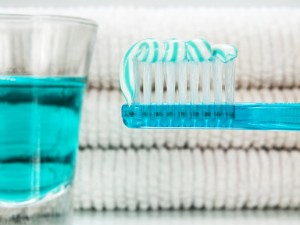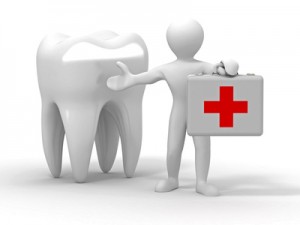Dry Mouth: Causes and Treatment

Causes of Dry Mouth
Dry mouth can be caused by a wide variety of lifestyle, dietary, and medical factors. Tobacco use, high sodium intake, and not drinking enough water contribute to symptoms of dry mouth. Another common cause behind dry mouth is medications such as anti-depressants and anti-histamines. Health conditions that impede saliva production are also contributors to xerostomia. Diabetes is one very common ailment that causes dry mouth.
How Dry Mouth Can Affect Dental Health
Saliva is nature’s way of rinsing your mouth and diluting acids that attack tooth enamel. When the mouth is dry, the gums can become inflamed and irritated and tooth enamel can soften when acid is present. With reduced saliva in the mouth, bacteria are more likely to colonize and thrive, and ultimately form plaque, a sticky substance that hardens into tartar. All of these issues associated with diminished saliva production contribute to dental caries and gum disease.
Tips for Combating Dry Mouth
To ease the harmful effects of dry mouth, our dentist recommends the following:
- Drink water throughout the day. Patients should strive to drink a minimum of eight, eight-ounce glasses of water every day.
- Practice meticulous oral hygiene. If you are prone to dry mouth, be sure to brush and floss your teeth thoroughly to reduce bacteria and plaque.
- Discuss medical conditions and your current medications with our dentist at your appointments for checkups and cleanings.
- Tell our team if dry mouth persists. Our dentist may prescribe a mouth rinse to increase saliva production.
- Eat a balanced diet low in sugars and simple carbohydrates—especially if you have diabetes or a family history of diabetes.
For more information and to schedule your next checkup, call the office of Owen C. Mandanas at 907-276-5522.




